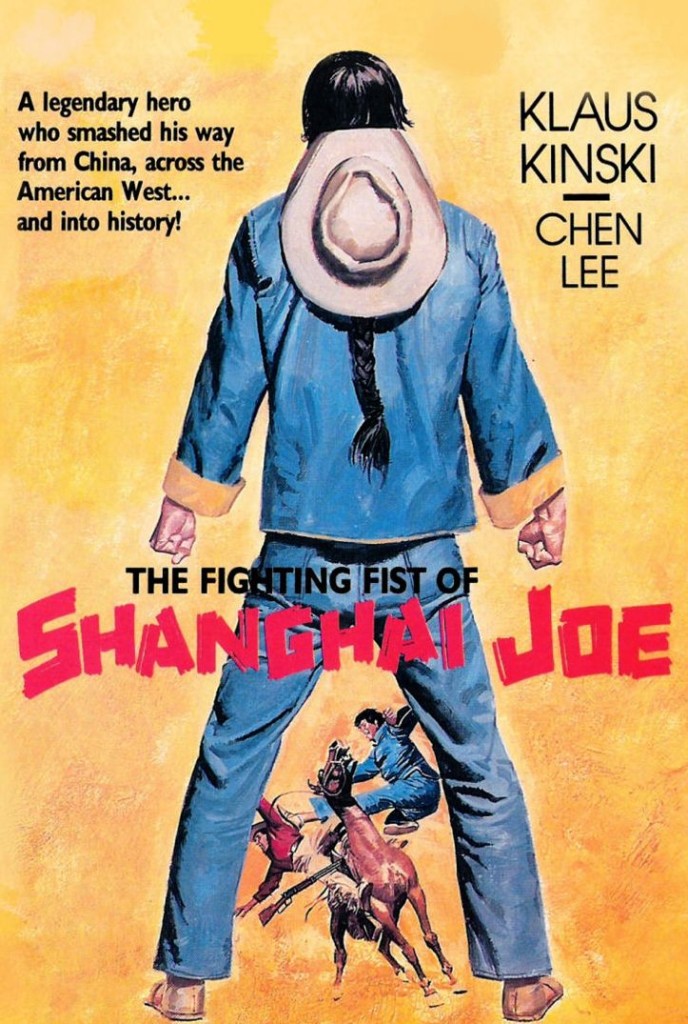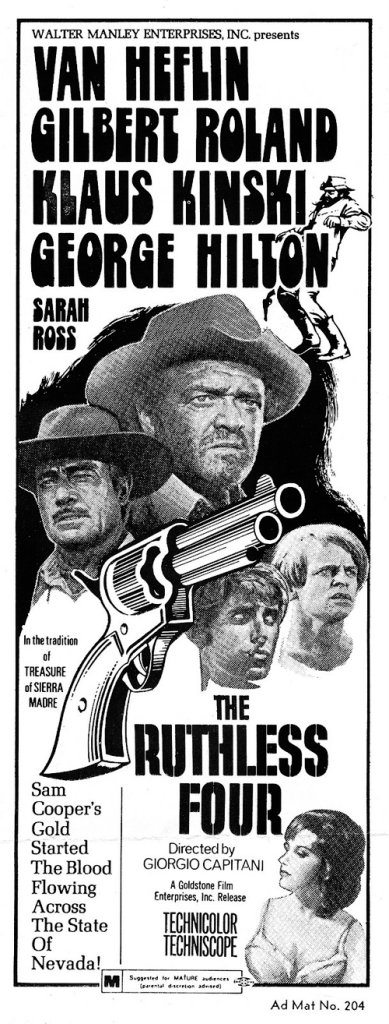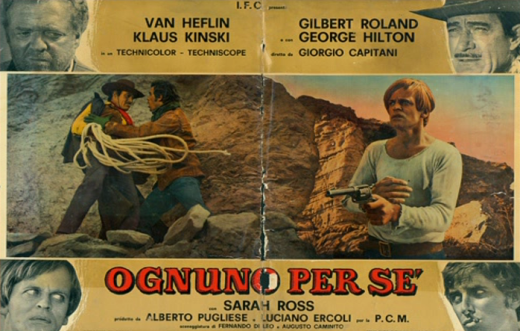Dir: Damiano Damiani
Star: Terence Hill, Miou-Miou, Robert Charlebois, Patrick McGoohan
a.k.a. A genius, two partners and a dupe
 This will certainly be one of the shorter reviews, partly because Kinski’s role in it is almost entirely trivial – his absence from the main cast list above, is entirely deliberate – and partly because there is not much else of merit or note. That might come as a surprise, particularly when you learn that some of the content was directed, uncredited, by Sergio Leone, making it his last Western. While his presence is particularly apparent in the opening scene, which has much the same spooky quality as often found in his more renowned works, that’s definitely the exception, rather than the rule. Even the score, by genre master Ennio Morricone, is far from one of his best, being never more than forgettable, and sometimes jars badly with the action which is being depicted, rather than enhancing it. I guess some credit is due for going to the effort of actually filming some scenes in the US, with Utah’s Monument Valley looking as majestic as in the far-superior works of John Ford.
This will certainly be one of the shorter reviews, partly because Kinski’s role in it is almost entirely trivial – his absence from the main cast list above, is entirely deliberate – and partly because there is not much else of merit or note. That might come as a surprise, particularly when you learn that some of the content was directed, uncredited, by Sergio Leone, making it his last Western. While his presence is particularly apparent in the opening scene, which has much the same spooky quality as often found in his more renowned works, that’s definitely the exception, rather than the rule. Even the score, by genre master Ennio Morricone, is far from one of his best, being never more than forgettable, and sometimes jars badly with the action which is being depicted, rather than enhancing it. I guess some credit is due for going to the effort of actually filming some scenes in the US, with Utah’s Monument Valley looking as majestic as in the far-superior works of John Ford.
As for the plot, it’s an over-long, complicated and largely tedious effort, about a con-artist and quick-draw gun Joe Thanks (Hill), who concocts a plan to defraud cavalry Major Cabot (McGoohan, definitely outside his usual comfort zone) of $300,000. This requires the help of half-breed pal Steamengine Bill (Charlebois) and his partner, Lucy (Miou-Miou), who loves both Bill and Joe. Joe is pretty much the only person who has a clue what’s going on, and every time his plan seems about to derail, he has a way to keep things moving. I don’t have a great deal of time for films where the audience is kept entirely in the dark like this, and once the pattern becomes clear, there’s virtually nowhere of interest left for the movie to go.
I do get the sense this was supposed to be a parody of the genre and its clichés, closer to Terence Hill’s Nobody series, rather than a legitimate Western, so I guess it should be cut some slack for its absurdist and slapdash approach, throwing elements in with far more enthusiasm than skill. Kinski’s contribution – one of his very rare appearances in a comedy – is typical. He plays Doc Foster, a gunfighter who becomes the butt of one of Thanks’ schemes early on in proceedings, the hero provoking Foster into a gunfight after wrecking his poker game. That goes about as well for the Doc as you’d expect, him being embarrassed in front of the watching town-folk. He ends up following Joe into another cavalry officer’s room, but is then dropped back out the window, landing astride his horse. Kinski yells out something along the lines of “Ow! My balls,” before he and his horse ride into the sunset, never to be seen again in the movie.
If you follow suit, you’ll be about ninety minutes or so better off. I can’t, in all honesty, recommend this to anyone except completists, be they of the Leone, Morricone or, in my case, Kinski varieties. Below is a clip from the German dub – it appears to have Kinski’s own voice – which covers most of his screen-time.





